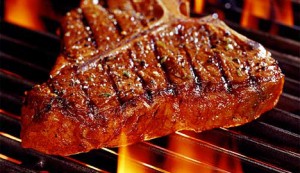The British Medical Journal published two papers that showed that ultraprocessed food kills. The first paper showed that highly processed food causes heart attacks and strokes. Another paper in the same journal showed that mortality is significantly increased when people consume highly processed food. Both papers were reviewed by CNN.
Food categories
Food questionnaires were administered over 24 hours every 2 years from every participant using the NOVA classification system.
There were 4 categories.
- Category 1 consisted of “unprocessed or minimally processed” food. This included legumes, vegetables, fruits, milk, eggs, meats, poultry, fish and seafood, yogurt, grains and natural juice.
- Next was category 2 of “processed ingredients”. This included salt, sugar, honey, olive oil, butter and lard.
- Category 3 consisted of “processed foods“. This included breads, cheeses, beer, wine, and cured traditional ham and bacon.
- Finally, category 4 consisted of “ultraprocessed foods”. This included sausages, flan, chorizo, mayonnaise, pizza, cookies, potato chips, chocolates candies, artificially sweetened beverages including whisky, gin and rum.
Study on cardiovascular risk
A study from France followed more than 105,000 people for 5.2 years. The participants filled out food questionnaires every 6 months. The foods consumed were classified according to the NOVA categories. The results showed that the men’s diet consisted to 17.6% of heavily processed foods while the diet of women consisted of 17.3% heavily processed food. Each 10% increment of highly processed food (called “ultraprocessed” food) had an association with 12% higher risk of cardiovascular disease, 13% more heart attacks and 11% more strokes. The researchers could also show that a decrease in ultraprocessed food was leading to less percentage of these diseases.
Mortality risk when consuming ultraprocessed food
A similar study involving close to 20,000 participants in Spain that had a long observation time of 15 years (from 1999 to 2014). The 4 food categories were as mentioned above.
A person eating more than 4 ultraprocessed items per day or more had a 62% increase of death rate in comparison to those who ate processed food less frequently. Each additional ultraprocessed food item added another 18% of mortality risk. Maira Bes-Rastrollo, professor of Preventive Medicine and Public Health at Universidad de Navarra, Medical School said: “These results are in agreement with other recent results based on populations in France and the United States. If all the different study results align, despite the separate research groups using dissimilar populations, diverse age ranges and different methodologies, then this lends support to a possible cause-effect relationship between ultraprocessed foods and poor health.”
Discussion
You may remember that your grandparents reminded you not to eat “junk food”. Often junk food is consisting of ultraprocessed foods. Both of these independent studies from France and from Spain have shown that there is a significant risk of heart attacks and strokes associated with the consumption of ultraprocessed foods. In addition, there is also a significant mortality risk when you consume ultraprocessed food. The key is to learn from this and cut down on processed foods; instead eat foods that are less processed and are wholesome for you. Eat vegetables, fruit, nuts and stay away from the grocery store’s shelves with processed foods.
Conclusion
What your grandparents used to tell you about processed foods is now available as two separate publications from the British Medical Journal. The less processed food you consume, the healthier your food intake is. You will enjoy better health. This is the simple message. Avoiding ultraprocessed food will help you to avoid heart disease, heart attacks and strokes. In addition you will have a longer life expectancy. It is up to us to translate these findings into reality for ourselves.







